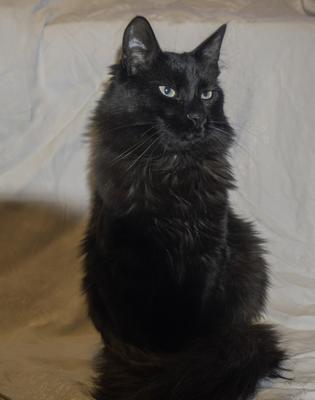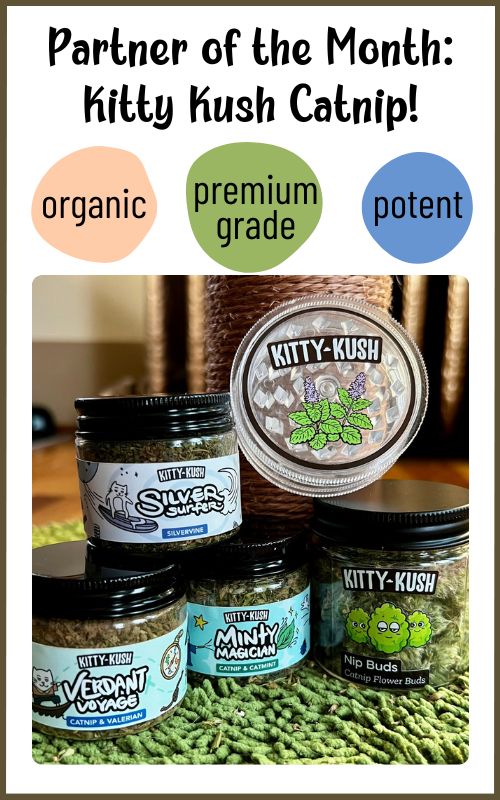- Home
- Behavior Problems
- Why Does My Cat Growl?
Why Does My Cat Growl?
by Rachel
(Wyoming)
Hi there - hoping you can help with something that’s been stressing me out. My cat, Shadow, is about 3 years old, and lately she’s been growling a lot.
I always thought growling was something dogs did, but Shadow does it too - and not just once in a while. Sometimes she’ll growl when I try to move her off the couch, or when I walk past her while she’s eating.

The other day she was sitting in the window and started growling at nothing - at least nothing I could see. I’ve had cats all my life, but none have ever been this vocal in a scary way.
It makes me feel like she’s mad at me, or maybe something’s wrong. She’s not aggressive, but the sound is so low and serious.
Is this just a personality thing, or is it something I should be worried about? I’d love your take.
Reply:
Hi Rachel,
You’re right - growling can catch you off guard, especially when it seems like it’s coming out of nowhere.
While dogs are more known for it, some cats absolutely growl too. It’s a way of saying back off, and it doesn’t always mean aggression. Sometimes it’s fear. Sometimes it’s just overstimulation. Some cats are more vocal and expressive than others.
With that said, it’s important to look at the context. When a cat growls while eating, it can be food guarding. When it happens during petting or being moved, it could mean she's hurting somewhere, or she’s just not in the mood.
The window growling could even be a response to something outside that you couldn’t see - another cat, a bird, even just a shadow.
My first follow-up question would be: has Shadow been checked out by a vet lately?
Pain or discomfort (even low-grade, like arthritis) can sometimes come out in behavior before anything else. And how’s her general mood otherwise? Is she playing? Using the litter box normally? Eating well?
Also - has anything changed in your home lately? New routines, new people, or even a different kind of litter or food can set off some sensitive kitties. Cats are all about stability, and the tiniest shift can rattle them.
You’re not wrong to be curious - and a little concerned. I wouldn’t jump to panic, but I would definitely start paying close attention to when it happens and what else is going on in those moments.
And of course - if anyone reading this has a growler at home, we’d love to hear about it in the comments section below! Every cat is different, and the more stories we gather, the more helpful this can be for others too.
Why Do Cats Growl? What It Means and What You Can Do
It can be a little jarring when your cat suddenly growls at you - or at something you can’t even see. But growling is actually a normal (if not always common) vocalization in cats. It’s their way of saying "Something isn’t right, and I need space."
Unlike hissing, which tends to be sharp and sudden, a growl is deeper and more guttural. It's a warning - and usually, a cat that growls is serious about not being messed with in that moment.
Common Reasons Cats Growl
Here are a few situations where a cat might growl:
- Pain or illness: Cats often hide pain, but if something hurts and you touch the wrong spot, they might growl. Arthritis, dental pain, or even tummy issues can be triggers.
- Fear or feeling threatened: A loud noise, unfamiliar person, or another pet can cause growling. Even things like plastic bags or vacuum cleaners can bring it on.
- Food guarding: Some cats don’t like others near them while they eat. This includes other animals, kids, or even people who get too close.
- Territorial behavior: Growling at the window? Your cat may be seeing another cat or animal outside.
- Overstimulation: Some cats enjoy petting… until they don’t. If your cat growls during or after petting, it might be too much for her nervous system to handle.
What to Watch For
If your cat growls often, especially if it’s new behavior, here are some signs to note:
- Limping or hesitation to jump
- Avoiding touch in certain areas
- Change in litter box habits
- Hiding more than usual
- Dilated pupils, swishing tail, or pinned ears before the growl
These can be signs that something deeper is going on.
What You Can Do
Start by giving her space when she growls. It’s tempting to keep trying to interact, but backing off shows respect and avoids escalating the situation.
Other helpful steps:
- Vet visit: Always a good first move if this is new behavior.
- Note the triggers: Keep track of when she growls. Is it during feeding? Petting? At night?
- Add enrichment: Puzzle toys, climbing spaces, and play sessions can reduce stress and improve her mood.
- Try calming aids: Feliway diffusers or calming treats might help, especially if the growling is stress-related.
- Separate feeding areas: If there are other pets, this can reduce tension.
Above all - don’t take it personally. Growling is just one of many ways cats communicate. Once you get to the bottom of what your cat is trying to say, you can start working toward a solution that helps you both.
Write your own page here: Cat Questions.
Recent Articles
-
Memory Lane Month Begins!
Apr 15, 25 10:22 PM
We're thrilled to start our "Memory Lane Month" event by visiting some cherished moments from our community! We're in the process of restoring meaningful community stories like this one, to preserve t… -
Will a Maine Coon Protect Its Owner From Danger or an Intruder?
Apr 09, 25 10:41 PM
Plenty of people are curious: Will a Maine Coon protect its owner if something happens? Let’s talk about what this means, and what kind of protector a Coonie is. -
9 Types of Maine Coon Cats and How to Tell Them Apart
Apr 09, 25 03:58 PM
When people say "types of Maine Coon cats," they're usually talking about color. But as Coonie lovers know, there’s a lot more to it than that! From wild-looking European lines to polydactyl paws and…


